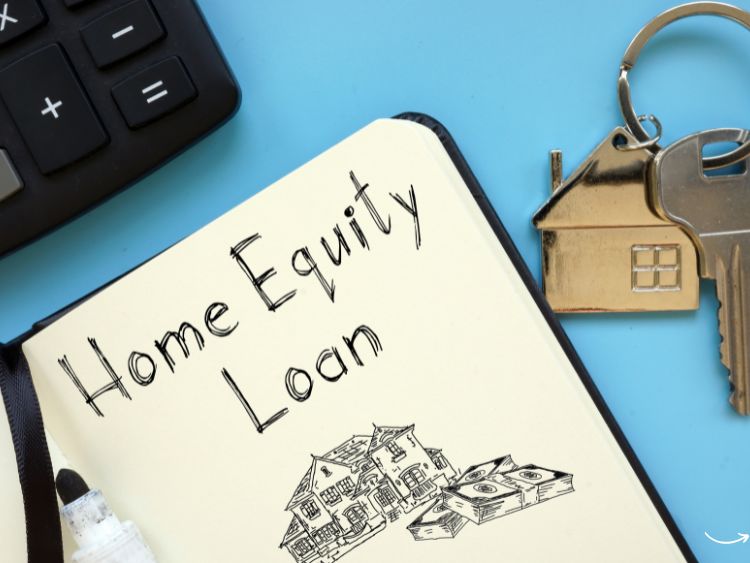Have you been eyeing that new kitchen remodel or planning a long-overdue vacation? Well, if you’re a homeowner in Utah, tapping into your home’s equity could be the golden ticket to funding your dreams. A home equity loan offers a fantastic way to leverage the value of your property to secure low-interest financing. But hold on—before you jump in, let’s dive deep into what a Utah home equity loan is all about. From the basics to the nitty-gritty details, this guide will cover everything you need to know.
What is a Home Equity Loan?
A home equity loan, often referred to as a second mortgage, allows homeowners to borrow against the equity they’ve built up in their property. Equity is the difference between your home’s current market value and the remaining balance on your mortgage. With a home equity loan, you receive a lump sum of money that you pay back over time with fixed monthly payments.
Key Features of Home Equity Loans
- Fixed Interest Rates: Unlike home equity lines of credit (HELOCs), home equity loans typically come with fixed interest rates. This means your monthly payments remain consistent throughout the loan term.
- Lump Sum Payment: Borrowers receive the entire loan amount upfront, making it ideal for large expenses.
- Repayment Terms: These loans usually come with repayment periods ranging from 5 to 30 years.
Why Choose a Utah Home Equity Loan?
So, why should Utah homeowners consider a home equity loan? Here are some compelling reasons:
Low-Interest Rates
Utah home equity loans often come with lower interest rates compared to personal loans or credit cards. This is because the loan is secured by your property, reducing the lender’s risk.
Tax Benefits
Interest paid on home equity loans may be tax-deductible, but this depends on how you use the loan proceeds. Always consult with a tax advisor to understand the implications for your specific situation.
Flexible Usage
Whether you’re looking to fund home improvements, consolidate debt, or cover unexpected medical expenses, a home equity loan provides the flexibility to use the funds as you see fit.
How to Qualify for a Utah Home Equity Loan
Qualifying for a home equity loan involves several factors. Lenders typically look at the following:
Credit Score
A good credit score is crucial. Most lenders prefer a score of 620 or higher, although some may have more stringent requirements.
Loan-to-Value Ratio (LTV)
LTV is the ratio of your outstanding mortgage balance to your home’s appraised value. Generally, lenders prefer an LTV of 80% or lower.
Income and Employment History
Stable income and a solid employment history can significantly boost your chances of approval. Lenders need to ensure you have the means to repay the loan.
Steps to Apply for a Utah Home Equity Loan
Ready to apply? Here’s a step-by-step guide:
- Evaluate Your Equity: Determine how much equity you have in your home. Most lenders allow you to borrow up to 85% of your equity.
- Check Your Credit Score: Obtain your credit report and ensure your score meets the lender’s requirements.
- Gather Documentation: Prepare necessary documents such as proof of income, tax returns, and your mortgage statement.
- Shop Around: Compare offers from multiple lenders to find the best rates and terms.
- Submit Your Application: Complete the application process with your chosen lender.
Pros and Cons of Utah Home Equity Loans
Like any financial product, home equity loans come with their own set of advantages and disadvantages.
Pros
- Lower Interest Rates: Compared to unsecured loans, home equity loans offer lower interest rates.
- Fixed Payments: Fixed interest rates provide predictable monthly payments.
- Potential Tax Benefits: Interest payments may be tax-deductible.
Cons
- Risk of Foreclosure: Your home is collateral, meaning you risk losing it if you default on the loan.
- Closing Costs: Be prepared for closing costs, which can range from 2% to 5% of the loan amount.
- Debt Accumulation: Borrowing against your home increases your overall debt load.
FAQs about Utah Home Equity Loans
What credit score do I need for a Utah home equity loan?
Most lenders require a minimum credit score of 620, but higher scores will get you better rates.
How much can I borrow with a home equity loan?
Lenders typically allow you to borrow up to 85% of your home’s equity, depending on your creditworthiness and other factors.
Are there any tax benefits to taking out a home equity loan?
Yes, the interest paid on home equity loans may be tax-deductible if the loan is used for home improvements. Always consult a tax advisor for your specific situation.
What are the risks of a home equity loan?
The primary risk is foreclosure. If you fail to make payments, you could lose your home. Additionally, taking out a home equity loan increases your overall debt.
Summary
A Utah home equity loan can be a powerful financial tool for homeowners looking to tap into their home’s value. With low-interest rates, potential tax benefits, and the flexibility to use the funds as needed, it’s no wonder these loans are popular. However, it’s crucial to understand the risks involved and ensure you meet the eligibility requirements before applying.
Authoritative Links
For more information, you can visit these resources:
- https://www.consumerfinance.gov/ask-cfpb/what-is-a-home-equity-loan-en-105/
- https://www.investopedia.com/terms/h/home-equity-loan.asp
- https://www.irs.gov/publications/p936
By understanding the ins and outs of Utah home equity loans, you can make informed decisions that align with your financial goals. So, are you ready to unlock the potential of your home’s equity?







